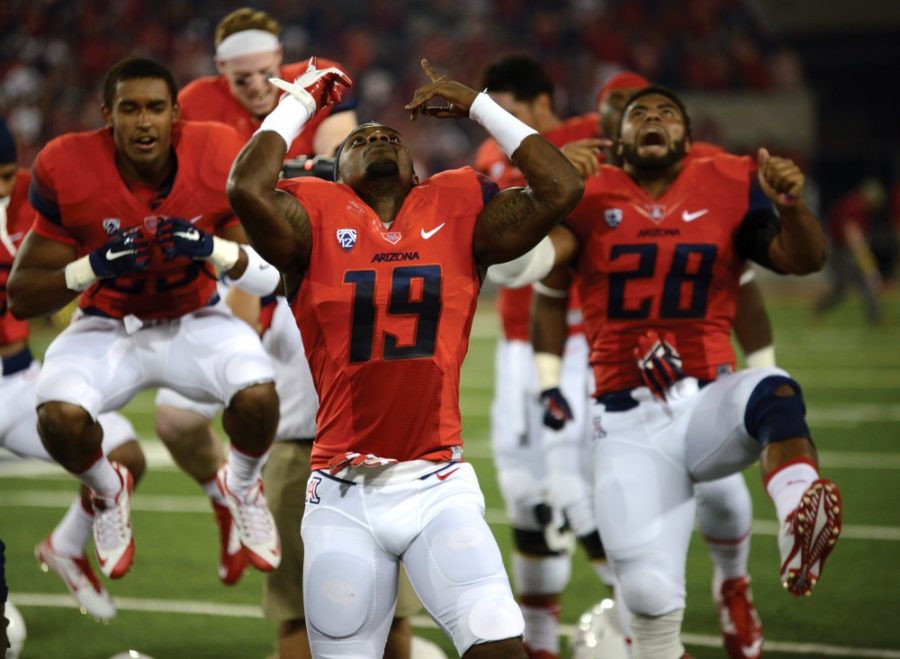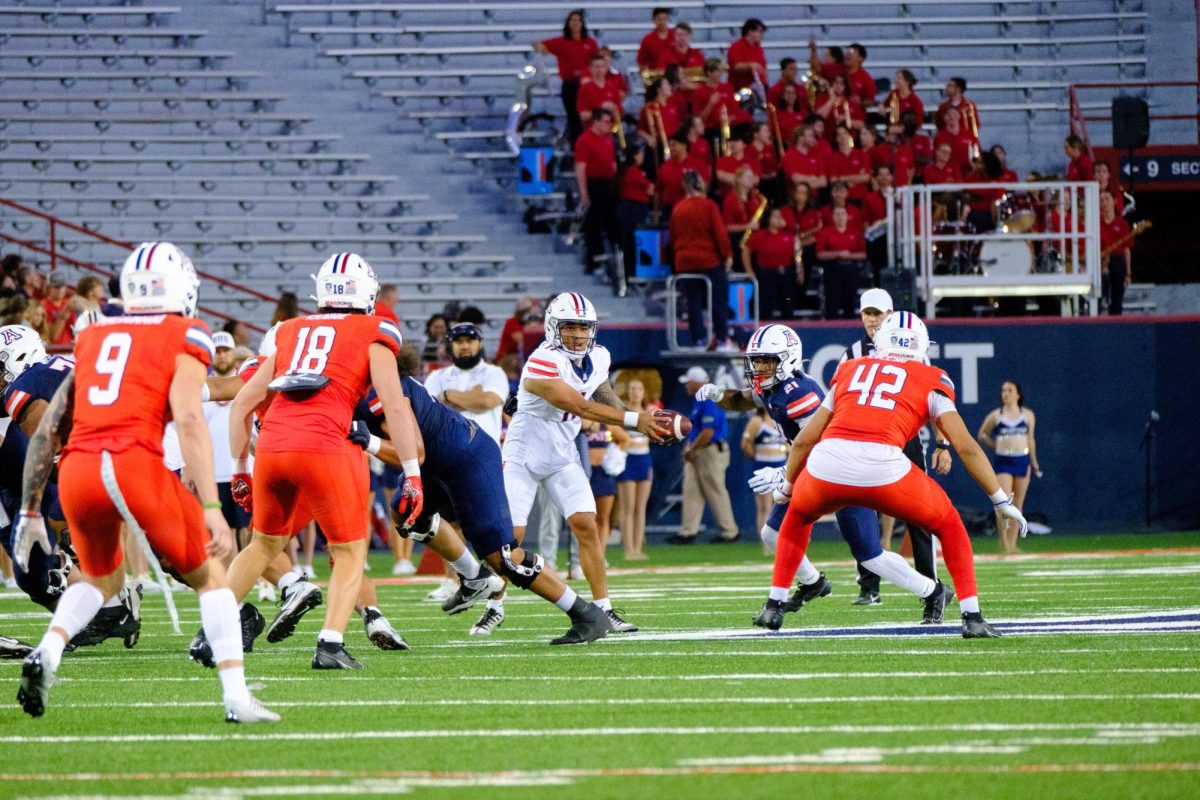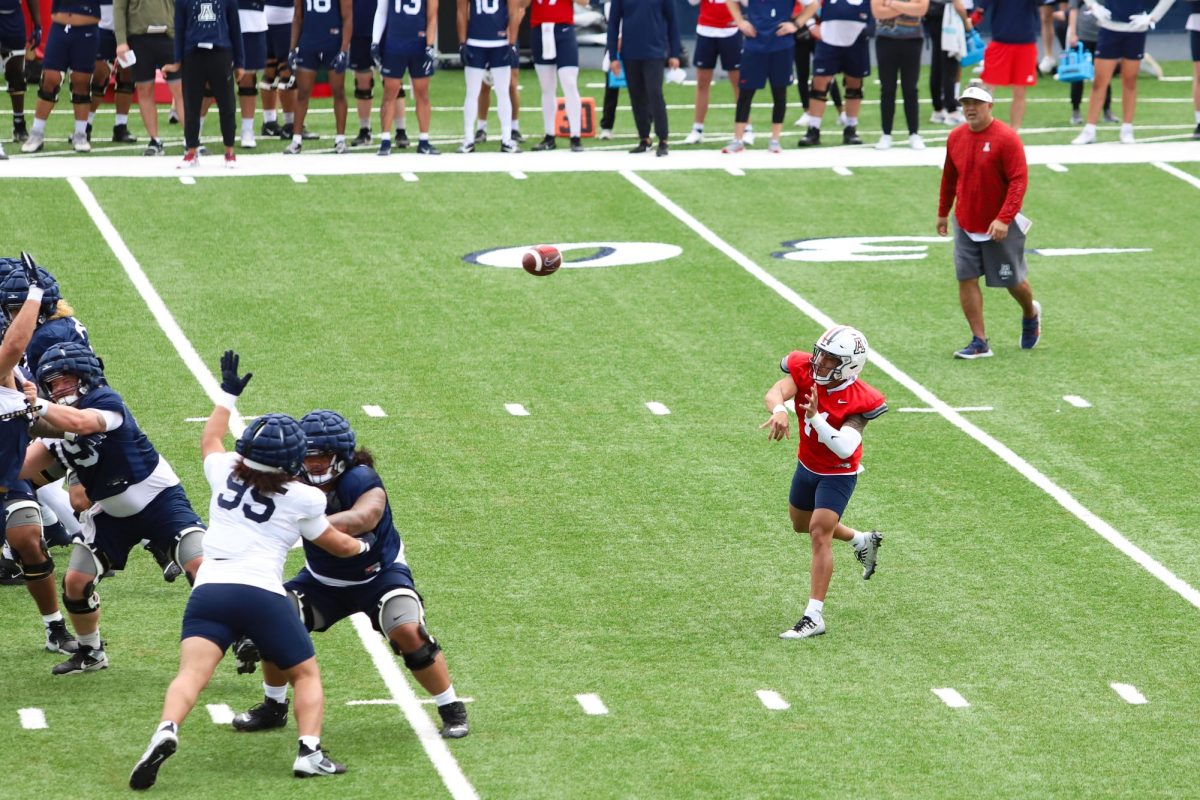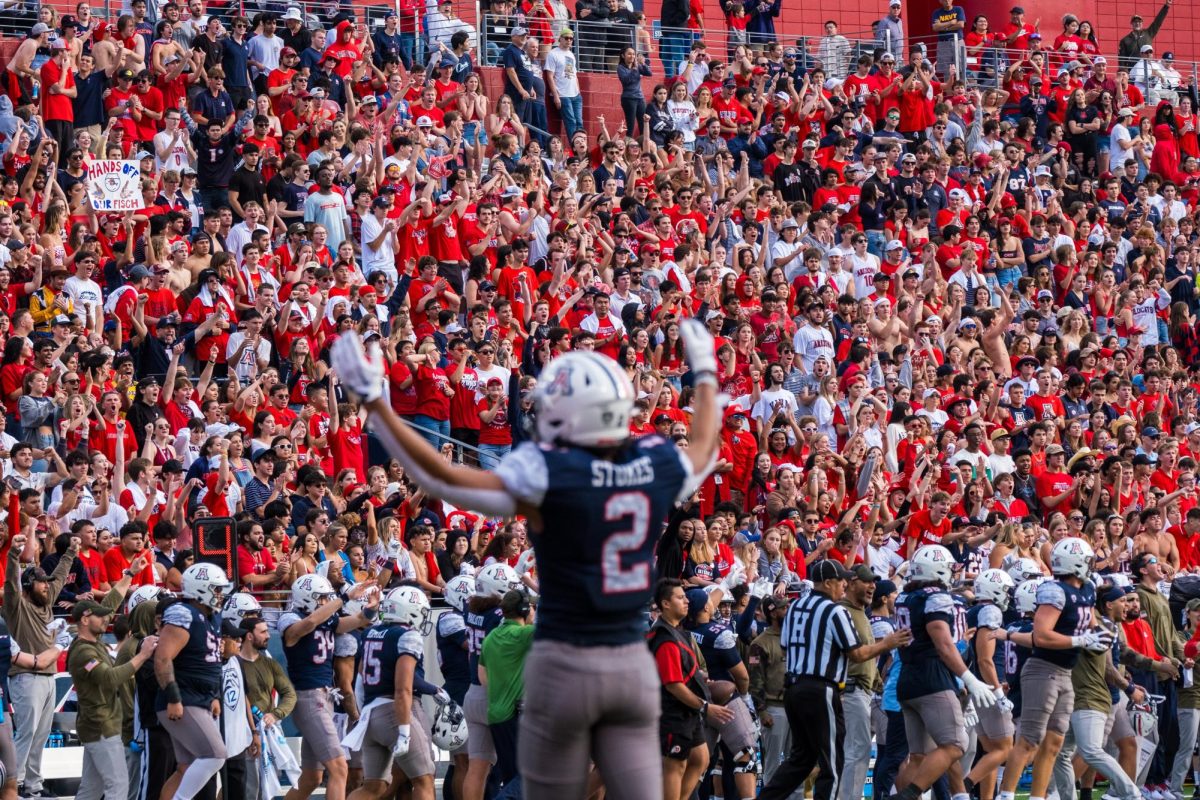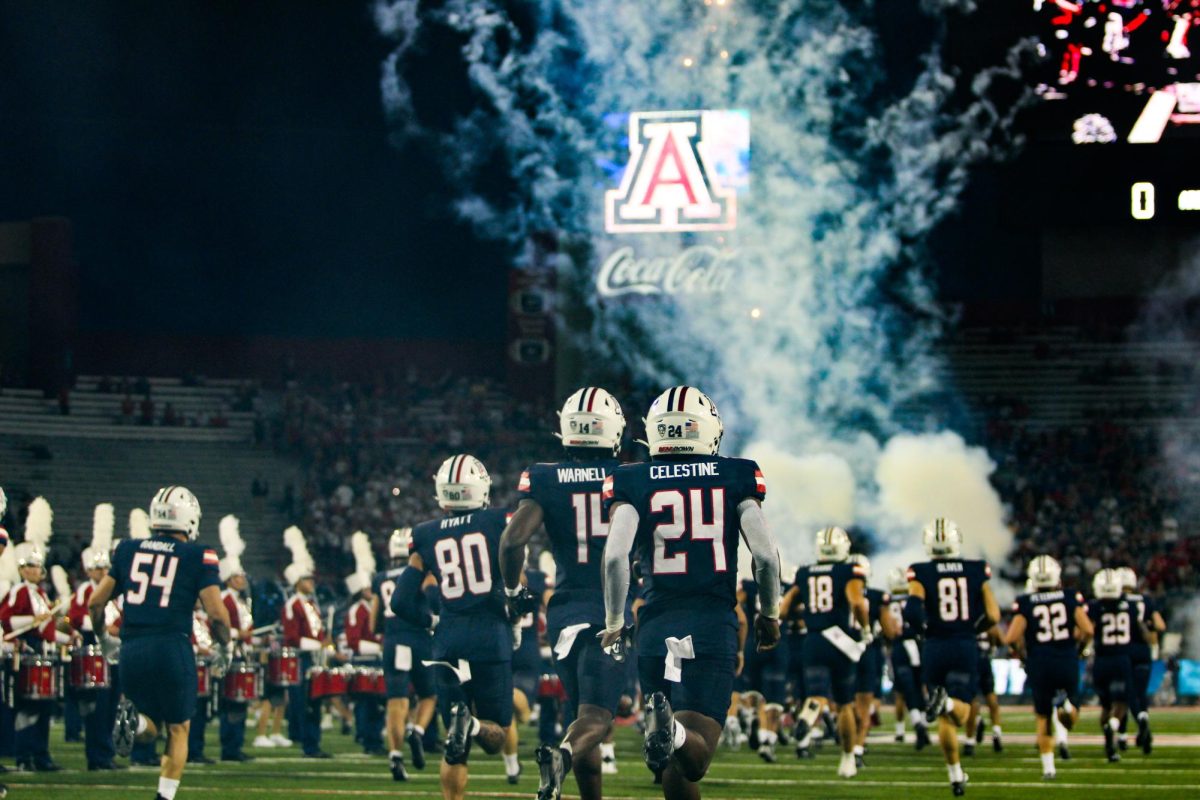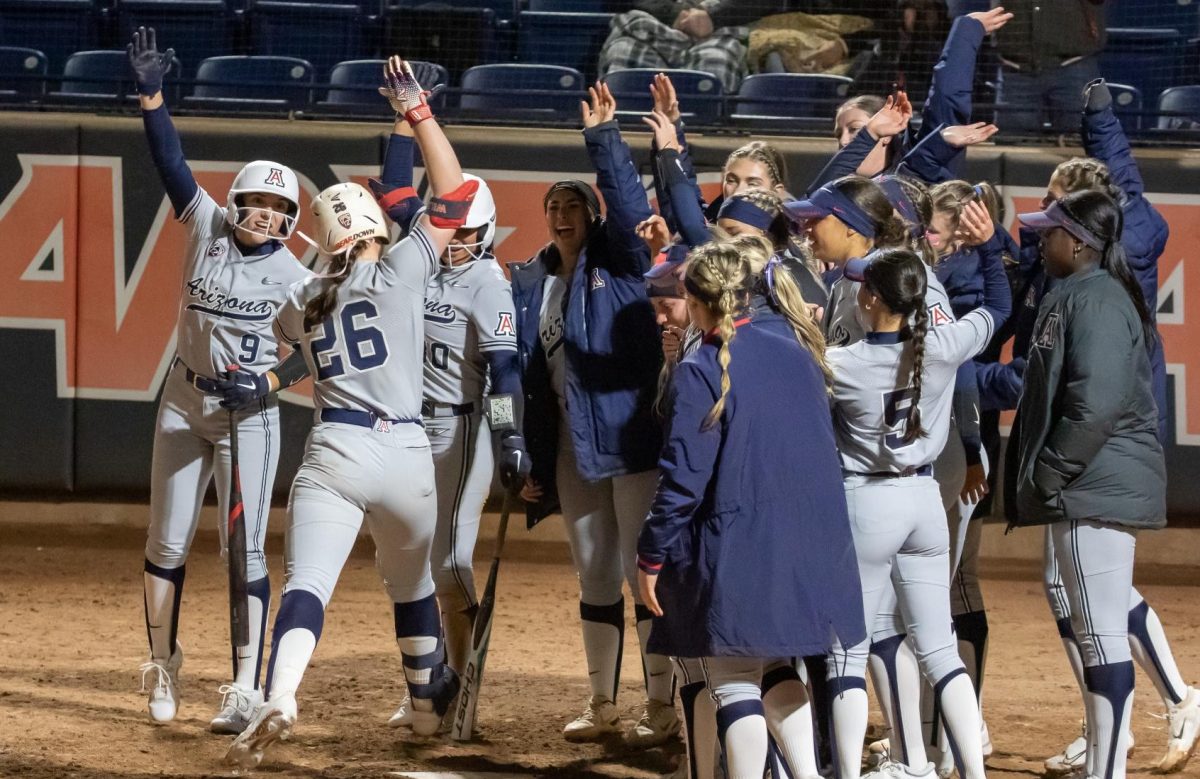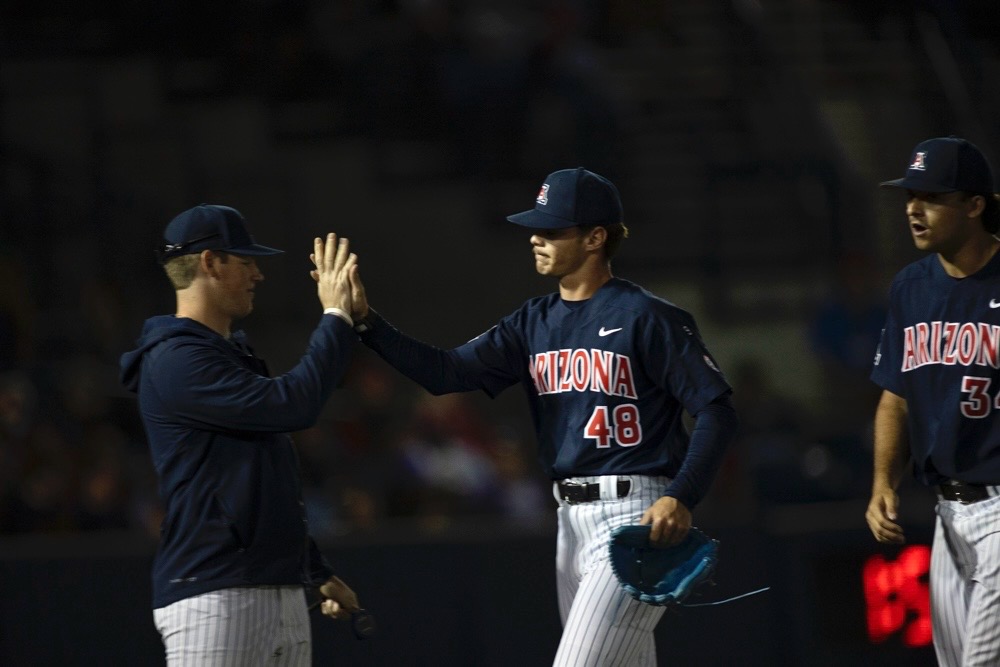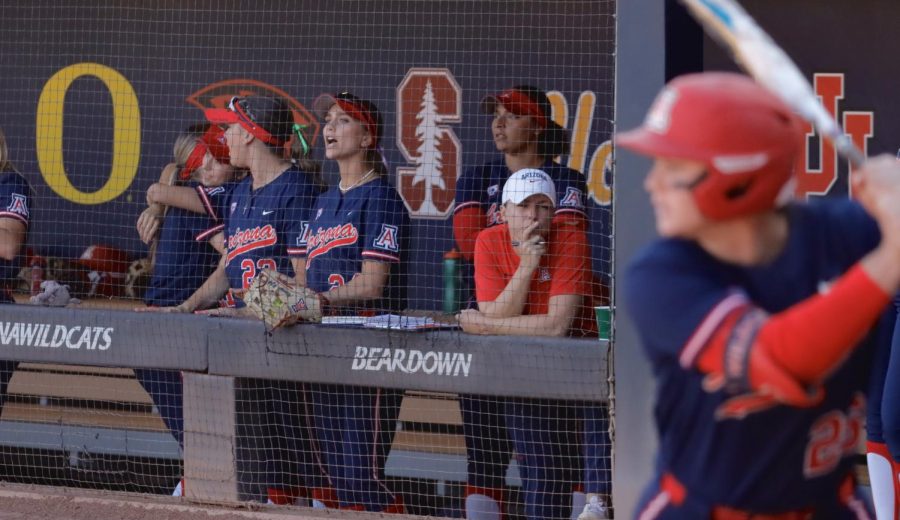There has been one commonality among Arizona football during pregame warmups since 2009: the Ka Mate haka.
Every player lined up and called out the tribal chant in front of the ZonaZoo before erupting into thunderous roars led by Arizona offensive lineman Lene Maiava. The tradition served as a motivation to the team before it went into battle and was started in 2009 by a few Polynesian players who wanted to share their culture with the Wildcats.
Enter Christina Campbell. The California State University, Northridge associate professor of anthropology created a petition on Change.org after watching footage of the Wildcats during ESPN’s College GameDay. Campbell, who is originally from New Zealand, was offended by the poor routine.
“My initial reaction was one of disbelief,” Campbell said. “The haka, especially Ka Mate, has deep cultural meaning to all New Zealanders. My first impression was that the Wildcats shouldn’t be doing it as they do not have the cultural background. Polynesian does not mean New Zealand, and that they were doing it so poorly; that’s what upset me the most.”
After two days, the petition had garnered the attention of national media and had the support of over 1,800 individuals.
Campbell didn’t want to bring so much negative national and media attention to the UA and its football program.
“I didn’t think it would happen as quickly as it did,” Campbell said. “And obviously I do not like the negative feedback I am getting from Arizona fans, although I can understand them being upset.”
After a few days, Campbell received an email from Arizona Athletics in response to her petition.
“We have decided to discontinue the activity,” Associate Athletic Director Jeremy Sharpe wrote in the email. “We want to stress that neither the University, athletics department, football program nor our student-athletes intended to disrespect or offend anyone and we apologize to anyone that was. Moving forward, we plan to identify alternatives that will provide an outlet for our Polynesian student-athletes to showcase the heritage they are so proud of.”
Overall, Campbell has mixed feelings about Arizona Athletics completely disbanding the pregame ritual and tradition.
“I do recognize that this will sadden and maybe even anger players and fans,” Campbell said. “Based on the responses of Kiwis, prior to me setting up the petition and the comments of the 1,800 plus people who signed it, there was enough reason to have them stop, at least until they could be taught how to do it properly, which was an option given by the Ngati Toa, the Kiwi [tribe] that owns Ka Mate.”
Since the decision, Campbell has faced a lot of negative criticism from many members of the UA student body who are disappointed in the decision to remove the haka. A counter petition has been created on Change.org, and over 1,800 supporters have signed.
At the same time, Campbell has complete respect for the UA players who find the pregame haka ritual to be meaningful.
“I sincerely hope that the players for whom this meant the most are able to find a way to express their own cultural heritage without appropriating something that is not their heritage,” Campbell said. “Again, there are many Polynesian cultures and they all differ in many ways, as many of them are Samoan.”
Campbell and many of her friends were caught off guard by the lack of “reverence” that Kiwis expect of the haka.
“It was obvious that many of the participants did not know all the words, did not know all of the gestures [and] did not know how the two go together,” Campbell said. “It is meant to be done as a challenge to the other team, yet they were not facing the opposite team. It is meant to be done in unison; there was little to none of that. It lacked the reverence that we expect to go along with the haka; it seemed more like a spectacle.”
Greg Byrne, Arizona director of athletics, hinted on Twitter that the Wildcats may be creating their own version of the haka. But at this time, nothing is known about the possible new tradition.
While the past few days may have been an emotional roller coaster for Campbell, she is glad to have made a difference in the cause.
“We, as a nation, have come a long way, and almost certainly still have far to go, but seeing such an iconic haka being done without the respect and reverence did not sit well with all New Zealanders, I know,” Campbell said.
Follow Matt Wall on Twitter.



